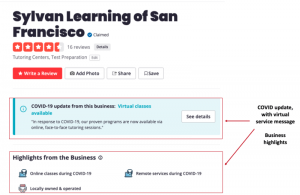Relationship selling is the art of establishing a connection with your clients. While this sounds easy at first, the reality is that it’s a little trickier to master than you might think.
People know when you’re not being genuine, and that will only anger them. You’ll need to put forth a serious effort and create real connections in order to be successful in relationship selling.
Here’s how to get started.
5 Ways to Properly Accomplish Relationship Selling
1. Practice your listening skills
One of the most important skills that you can use to close sales with relationship selling is your ability to listen more than your talk. This means abandoning a more aggressive sales pitch approach to really listen to what your clients need.
If your client is dead set on doing things a certain way, then arguing with them will not get you very far. Instead of trying to make their needs fit into your ideal, find a way to work with them to achieve the desired result.
People like to feel heard, and if they do, they’ll more likely want to hear what you have to say in return.
If you’re a fan of Dale Carnegie, then you’ll know that his most tried and true advice when it comes to business is to be a good listener. People like to feel heard, and if they do, they’ll be more likely to want to hear what you have to say in return. Using your listening skills can be a good way to land new clients or even keep your existing ones coming back for more.
2. Become a valuable resource for your clients
Whether you’re a freelancer or part of a company, the reason your client is hiring you is for your expertise in a particular area. Don’t treat your clients like a transaction. When they come to you with problems, offer them a solution.
You don’t need to be pushy about it either. Upselling your other services or suggesting other work could be as simple as pointing out something that you think is missing in their business. What do they need? How can your skills benefit them, and how can you help them to grow their business.
Asking what you can do for another person shows that you care about more than just lining your pockets. It might even make them think twice about swapping to a cheaper competitor who may not offer the same level of service that you do.
3. Tend to their worries and concerns
If your leads are not ready to close the deal or your current clients aren’t interested in your suggestions, have you stopped to ask them why? People forget that business discussions are actually a conversation and not just a question with a yes or no answer.
Whatever is holding your lead or client back from committing to you might be something that you can change. Ask them if something is missing that they need or if perhaps they’re afraid that they won’t get what they pay for. Maybe they’re having trouble fitting your service or products into their budget?
Ask yourself if you’d be willing to offer them different terms or even a guarantee to ease their mind. Sometimes sweetening the pot just a little bit will be enough to make them pull the trigger, and even if they need a small discount, it’s often worth it to land a valuable contract.
4. Learn to take criticism
It’s okay to be proud of your work, but you should learn to not get defensive when you hear the word no. Not every deal will work out, and reacting poorly to a situation won’t change that. The only thing you’ll get from this is a bad reputation because your client no doubt knows many other people who could use your services, and a poor reaction means they’ll be sure to tell everyone about how badly you treated them.
If your prospect doesn’t bite, then don’t try to argue with them or aggressively sell your product or service. This will only agitate them. Instead, thank them for their time, and ask them for some feedback. What didn’t they like? Is there anything you could do differently that would change their mind in the future?
Even if you don’t nab a sale, you can get some valuable insight into how to improve your own business relations.
Even if you don’t nab a sale, it’s possible that you could get some valuable insight here into how to improve your own business relations. As long as you don’t take up too much of their time, most people are okay with sharing a little feedback. Plus, even if you’re not the right fit for them, they may still recommend you to somebody else who could use your services!
5. Don’t try to make a bad match work
The truth is that not every client will be a good fit for you. If this is the case, don’t get discouraged, there’s plenty of other fish in the sea. It’s very important that you don’t try to convince them to hire you or buy your product if you know it’s a bad choice for them. They will eventually figure this out on their own, and when they learn they’ve been misled you’ll have a huge problem on your hands.
Instead, be honest with them. They’ll appreciate it, and they might even be impressed enough by your integrity to recommend you to friends who could hire you or buy products from you. You can even take this a step further by referring them to someone else you know who can help them.
This is a particularly useful strategy if you use it to make friends with other business owners in different yet related industries. You can use this to open up a line of communication and use your relationship selling skills to trade leads with them the future. This benefits you both, and a little generosity on your part is what opens the doors.
Business & Finance Articles on Business 2 Community
(14)
Report Post






